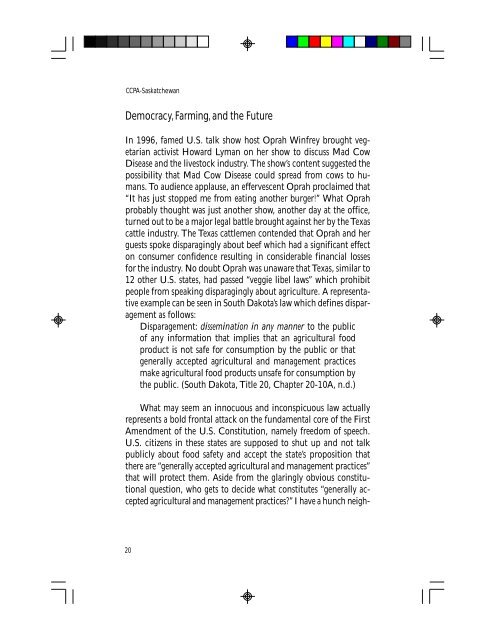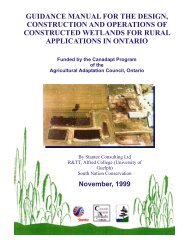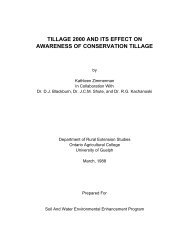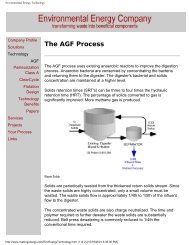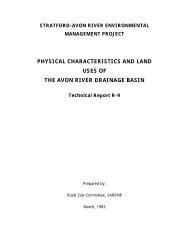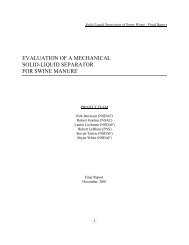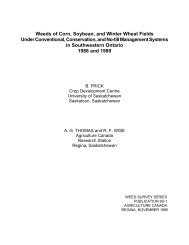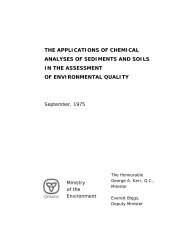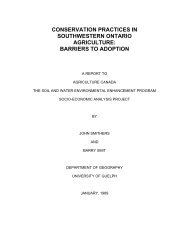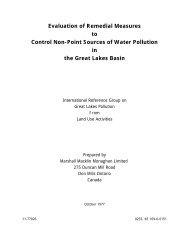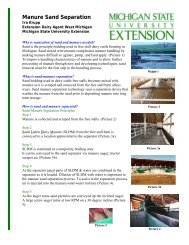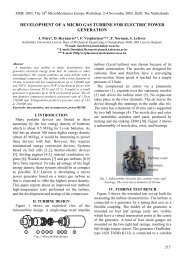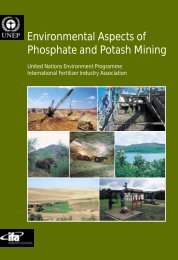Beyond Factory Farming: Corporate Hog Barns and the Threat to ...
Beyond Factory Farming: Corporate Hog Barns and the Threat to ...
Beyond Factory Farming: Corporate Hog Barns and the Threat to ...
You also want an ePaper? Increase the reach of your titles
YUMPU automatically turns print PDFs into web optimized ePapers that Google loves.
CCPA-Saskatchewan<br />
Democracy, <strong>Farming</strong>, <strong>and</strong> <strong>the</strong> Future<br />
In 1996, famed U.S. talk show host Oprah Winfrey brought vegetarian<br />
activist Howard Lyman on her show <strong>to</strong> discuss Mad Cow<br />
Disease <strong>and</strong> <strong>the</strong> lives<strong>to</strong>ck industry. The show’s content suggested <strong>the</strong><br />
possibility that Mad Cow Disease could spread from cows <strong>to</strong> humans.<br />
To audience applause, an effervescent Oprah proclaimed that<br />
“It has just s<strong>to</strong>pped me from eating ano<strong>the</strong>r burger!” What Oprah<br />
probably thought was just ano<strong>the</strong>r show, ano<strong>the</strong>r day at <strong>the</strong> office,<br />
turned out <strong>to</strong> be a major legal battle brought against her by <strong>the</strong> Texas<br />
cattle industry. The Texas cattlemen contended that Oprah <strong>and</strong> her<br />
guests spoke disparagingly about beef which had a significant effect<br />
on consumer confidence resulting in considerable financial losses<br />
for <strong>the</strong> industry. No doubt Oprah was unaware that Texas, similar <strong>to</strong><br />
12 o<strong>the</strong>r U.S. states, had passed “veggie libel laws” which prohibit<br />
people from speaking disparagingly about agriculture. A representative<br />
example can be seen in South Dakota’s law which defines disparagement<br />
as follows:<br />
Disparagement: dissemination in any manner <strong>to</strong> <strong>the</strong> public<br />
of any information that implies that an agricultural food<br />
product is not safe for consumption by <strong>the</strong> public or that<br />
generally accepted agricultural <strong>and</strong> management practices<br />
make agricultural food products unsafe for consumption by<br />
<strong>the</strong> public. (South Dakota, Title 20, Chapter 20-10A, n.d.)<br />
What may seem an innocuous <strong>and</strong> inconspicuous law actually<br />
represents a bold frontal attack on <strong>the</strong> fundamental core of <strong>the</strong> First<br />
Amendment of <strong>the</strong> U.S. Constitution, namely freedom of speech.<br />
U.S. citizens in <strong>the</strong>se states are supposed <strong>to</strong> shut up <strong>and</strong> not talk<br />
publicly about food safety <strong>and</strong> accept <strong>the</strong> state’s proposition that<br />
<strong>the</strong>re are “generally accepted agricultural <strong>and</strong> management practices”<br />
that will protect <strong>the</strong>m. Aside from <strong>the</strong> glaringly obvious constitutional<br />
question, who gets <strong>to</strong> decide what constitutes “generally accepted<br />
agricultural <strong>and</strong> management practices” I have a hunch neigh-<br />
20


